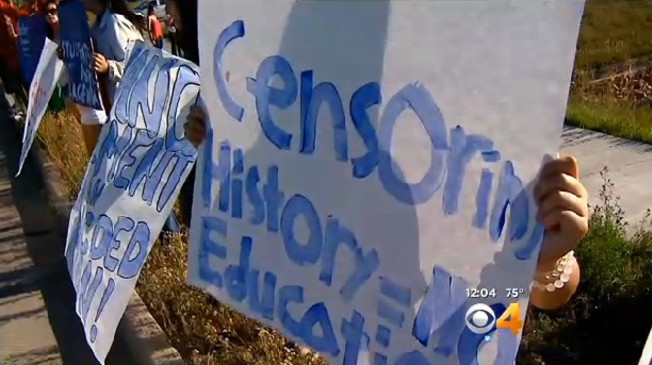Is a fight over teaching high school history in Colorado over? It appears so; that’s the good news. But the very same fight is brewing in other parts of the country.
Late last year, the Jefferson County school board attracted national media attention over a plan to ‘review’ the curriculum framework for Advanced Placement US History, part of a highly politicized effort to to challenge what conservatives complain is a left-wing bias in the AP’s revised guidelines. The campaign had been gearing up months earlier and even involved the Republican National Committee, which issued a statement in August of last year condemning the AP framework as a “radically revisionist view… that emphasizes negative aspects of our nation’s history while omitting or minimizing positive aspects.”
But last week the Jefferson County board announced that the review plan was off the table.
The idea for a formal review came up as soon as conservatives took control of the Jefferson board in 2014. As NCAC summed up the controversy last year:
School board members have proposed a new “board committee for curriculum review” whose mission would be to “promote citizenship, patriotism, essentials and benefits of the free enterprise system, respect for authority and respect for individual rights.” One proposal states that “Materials should not encourage or condone civil disorder, social strife or disregard of the law [but] should present positive aspects of the United States and its heritage.” Another proposes that committee identify materials that “may reasonably be deemed” to be “objectionable.”
The idea that teaching history should align with promoting ‘patriotism’ was troubling — and, of course, any adequate discussion of US history would require the inclusion of “disorder.” As NCAC’s letter — signed by 8 different national and local groups — pointed out:
[I]t would be nearly impossible to teach US history without reference to ‘civil disorder,’ which is appropriately discussed in connection with the American revolution, the labor movement, civil rights and gay rights activism, US entry into World War I, voting rights protests, and public demonstrations against the war in Vietnam, abortion rights, government surveillance, and countless other significant events in US history.
After the proposal was greeted by student protests and national media attention, the board proposed a compromise, dropping the language about patriotism and disorder and offering a review committee with students, teachers and community members. But the whole plan appears scuttled for now.
But that doesn’t mean the fight over AP History are going away anytime soon. Conservative lawmakers in several states are pushing forward with plans to challenge the new AP History framework, using the same rhetoric about an alleged shift away from ‘American exceptionalism’ and towards teaching the “negative” aspects of the nation’s history. As Washington Post columnist Catherine Rampell put it:
Policymakers in Georgia, Texas, South Carolina, North Carolina and Colorado have agitated to scrap or doctor the AP course, citing its “liberal bias” and supposed focus on U.S. ‘blemishes.’
So while the story may be over in Jefferson County, in other places — as coverage by CNN and NPR would suggest — the fight is just getting started.


